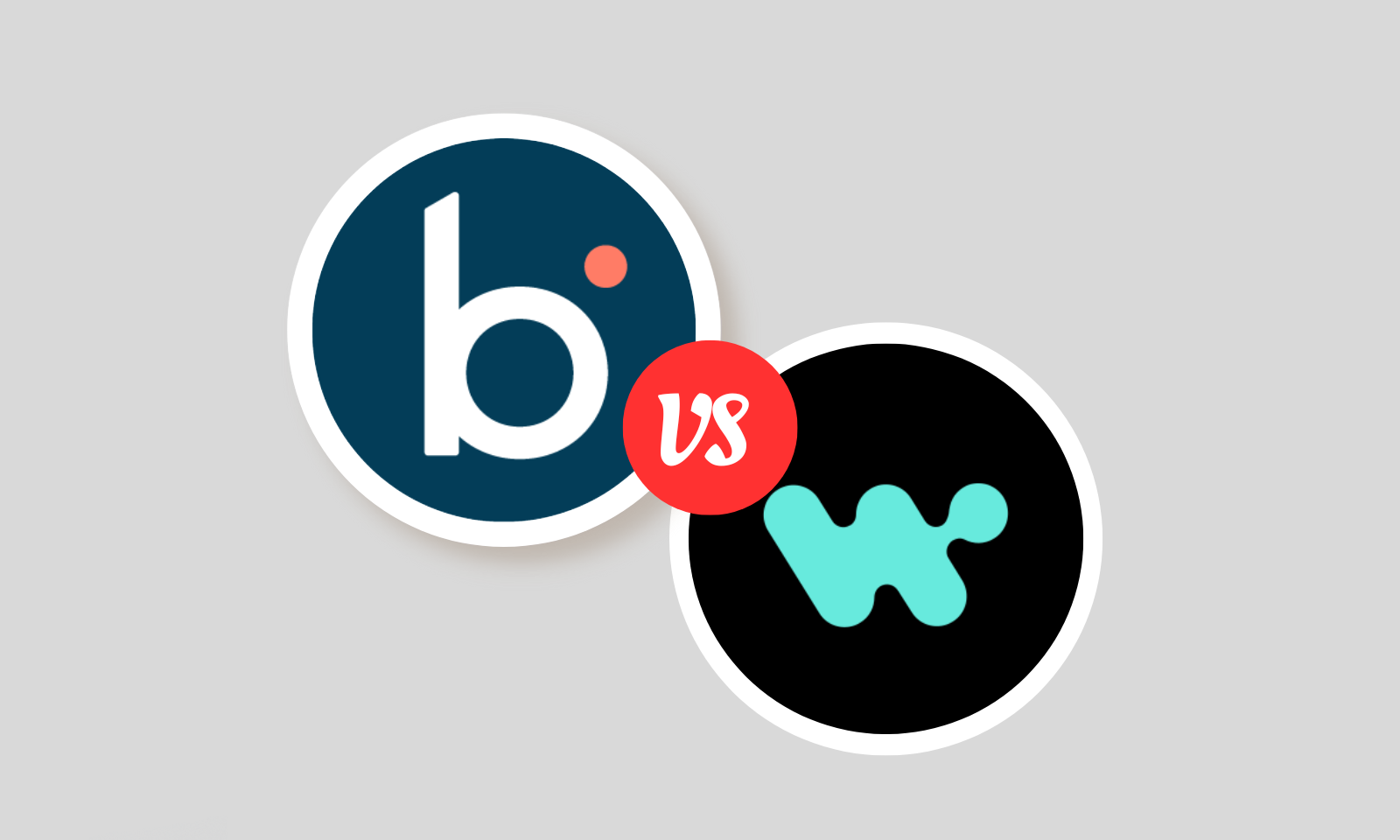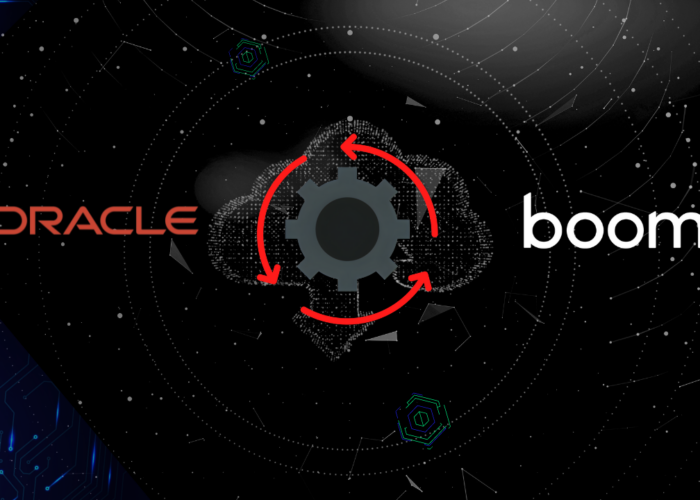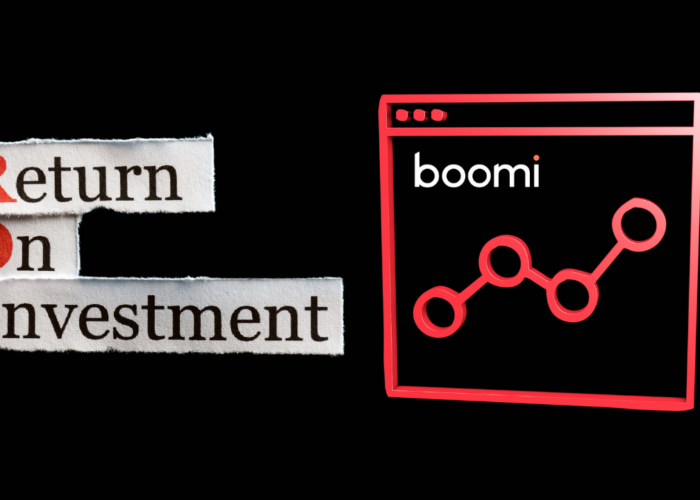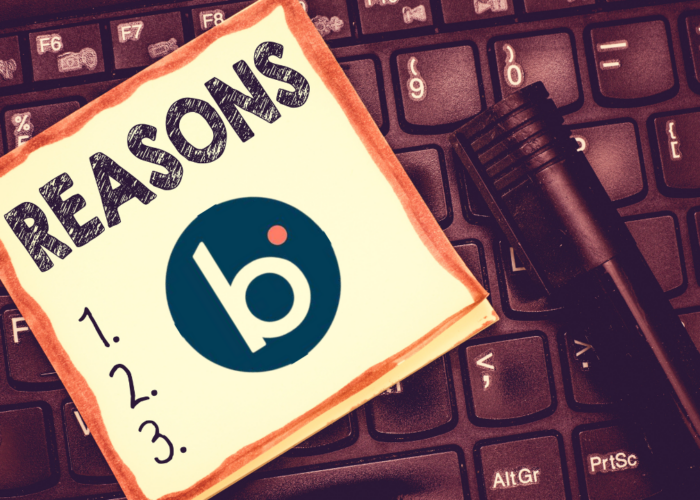Efficiency is a top priority in today’s business landscape. Since most processes are digitised in modern organisations, achieving productivity requires a well-crafted integration of crucial IT systems. One approach to merging your systems is an integration platform as a service (iPaaS), a straightforward solution offering a range of pre-built connectors and workflow automations. In this article, we will explore Boomi vs Workato, two highly sought-after iPaaS options on the market. We will also outline their distinctive features and assess their strengths and weaknesses in relation to each other.
|
What is Boomi?
Boomi is a cloud-centric integration platform as a service (iPaaS) that focuses on interlinking business applications and mobilising data between them. Through a series of platform services that handle different areas of your IT infrastructure, Boomi simplifies your organisation’s everyday operations. Let’s take a look at these services in more detail:
Integration Services
Integration in Boomi helps establish fast connections between enterprise applications. Through the availability of pre-built connectors, Boomi transports your data between applications without the process being too demanding or manually-intensive. It also suggests intelligent mappings for your application components, allowing you to choose the best configuration for your business scenario.
Master Data Hub (MDH)
This cloud-native, system-independent feature allows you to better understand and utilise key data within your business. Boomi MDH secures your data integrity, consistency, and transparency through well-structured records that aid your decision-making process. It also operates on a low-code basis, simplifying the process of joining and matching records. Ultimately, MDH preserves the quality of your data at every point in your digital ecosystem. Whether it’s accessed by your marketing or finance applications, your data will remain uniform and error-free.
API Management
This service can deploy APIs and fully manage their lifecycle irrespective of the environment. You can oversee and perform API-related tasks through the user-friendly interface that Boomi offers along with its platform. As a result, publishing, exposing, and monitoring data access and underlying integrations through your APIs becomes simpler than ever before. In addition, Boomi provides an API Developer Portal that acts as a medium of interaction for developers, both internal and external to the organisation. They are allowed to register their applications and request access to other APIs through the portal. Furthermore, developers can obtain additional documentation, support channels, and resources that can help them leverage APIs with more ease.
B2B/EDI Management
Each business has a continuous stream of communication with a variety of other businesses and stakeholders. To strengthen this network, Boomi offers its B2B/EDI Management service. It reduces the cost of transparent supply chain management between a company, its partners, and external suppliers; Boomi’s EDI dashboard provides data access to users from all of these groups. Furthermore, with Boomi’s platform and EDI feature, there’s no need for an additional integration with a third-party software that handles data flows to and from ERPs. Scaling your company’s partner network also becomes quicker as this service supports rapid partner onboarding. Data transfers powered by Boomi’s EDI service also carry enhanced credibility, adhering to general protocols like Applicability Statement 2 (AS2) and File Transfer Protocol (FTP)/Secure FTP, as well industry-specific messaging formats such as Minimal Lower Layer Protocol (MLLP, primarily used in healthcare).
Data Catalog and Preparation
Using AI methodologies such as NLP, this feature helps companies find the right data to solve the issue at hand. Its main purpose, however, is to catalogue data that exists in Boomi’s MDH, contextualising your business data and making it analysis-ready. It can also help build a business glossary that acts as a central point for maintaining a shared business vocabulary within your enterprise. Overall, these efforts ensure data governance and thus protect sensitive information.
Event Streams
This advanced service can help companies act quickly in dynamic environments. It is used to create high-performance, real-time integrations that handle large volumes of data. It is also used to create event-driven and batch integrations that are reliable and scalable, especially during increases in call volumes. Along with these complex integrations, Boomi Event Streams can also support multiple delivery modes such as FIFO, Pub-Sub, and Queueing, all through the platform’s low-code, cloud-native development environment.
Flow
Flow is Boomi’s workflow automation service. With a visual drag-and-drop interface, Boomi Flow can help you build applications by utilising template workflows. You don’t need any coding skills to create reusable, customisable components that can be used to connect data sources and applications on any type of cloud or on-premises, creating a network of secure data pathways. It also promotes data observability by implementing the OpenTelemetry protocol (OTLP). Ultimately, you can build an intuitive application and deploy it anywhere you’d like—in the cloud, on-premises, or in a hybrid environment.
This article may interest you: 7 reasons why you should choose Boomi
What is Workato?
Workato is another iPaaS technology that simplifies business processes by connecting disparate applications and sources of data. Its user-friendliness is one of its noteworthy characteristics. Through its easy-to-use interface, it offers a set of capabilities that helps create fast integrations, automation, and data management approaches. Let’s dive into its platform services below:
Integration Services
Workato offers thousands of ready-to-use connectors to popular applications that add value to your organisation’s integration undertakings. This can all be done through Workato’s low-code/no-code platform. If your project needs custom integrations, Workato offers a user-friendly SDK where you can build your own connectors.
Workflow Automation
No organisation is without its grind. These tasks tend to be repetitive and encroach time that could be put to more fruitful use. Workato’s Workflow Automation feature helps users design reliable and efficient automated workflows of such tasks to save time and increase productivity. Through this platform, all of this can be done by avoiding code; using a visual interface, users can specify triggers, actions, and transformations for their automated business processes. Fundamentally, the building blocks of workflow automations in Workato are recipes. They describe how your application must communicate with other systems and function as a whole.
Enterprise-level Security and Governance
Each user within a company may only be required to access a limited amount of data as per their role. Workato facilitates the delegation of roles and permissions that correspond with their job in the company. It also provides audit logs that track user activity and comes in handy while trying to enforce governance standards. The app dependency graph that comes along with this service helps users understand the dependencies between different systems in their company, optimising security management and troubleshooting.
This article may interest you: 7 reasons why you should Integrate, Automate & Orchestrate with Workato
Comparison of Boomi vs Workato: What is the difference?
While analysing and comparing Boomi vs Workato, we concluded that they are both robust technologies despite their different focuses and advantages. It is important to use either of these solutions in situations where they truly shine. We’ve compiled some points of comparison that can help you distinguish between these iPaaS platforms.
Functionality and Scope
Boomi is well-suited for complex and large-scale integrations that cover a variety of applications, systems, and data sources. This also makes it the ideal solution for more industry-specific scenarios such as integrating IT systems within the healthcare sector. You may be able to find Boomi in global enterprises and industries that follow strict policies and standards.
However, Workato is used by citizen integrators within the functional units of a company (HR, marketing, sales, and so on). Due to its simplicity and ease-of-use, it is well-suited for mid-sized companies or department-level integrations within larger organisations, especially when automation of repetitive tasks is fundamental to their digital transformation efforts.
Both Boomi and Workato offer similar levels of customisation. Both platforms offer SDKs that allow the construction of custom connectors. With Boomi, users can manoeuvre data mappings more efficiently, as they can visualise the exact way in which data should be transformed and sent between systems. Similarly, Workato provides leeway to design customer recipes that satisfy the user’s needs. This can help users achieve tailor-made automation solutions for their businesses.
Ease-of-Use and Learning Curve
For those with limited coding knowledge and experience, Workato offers a low-code environment that is easier to work with. While Boomi is also user-friendly and intuitive to use, citizen integrators may prefer Workato in cases where they want to limit code as much as possible and streamline the process of formulating quick integrations. Although Boomi has a slightly harder learning curve for users who are not familiar with integration concepts, this can be attributed to its advanced capabilities.
APIs
API Management is a huge part of Boomi’s platform feature set. Boomi does everything from posing integrations through APIs gateways, handling the API lifecycle from design to deployment, securing APIs using authentication mechanisms like OAuth 2.0, analysing API traffic, monitoring key metrics, and so on.
However, unlike Boomi (where API management is a core feature) Workato’s API platform is an add-on to its iPaaS platform. Workato provides API recipes that can be converted into endpoints for faster data access, even without logging into your Workato account. Furthermore, it offers access policies and profiles to screen the usage of APIs and preserve their security.
Cost/Prices
Both Boomi and Workato provide flexible and transparent pricing models falling under a number of tiers.
With Boomi, you can start by opting for a select few services and expand them later. Their tiers include Professional, Pro Plus, Enterprise, and Enterprise Plus.
Workato offers two pricing models: one for your business, and one for your product. Within the business plan, the base workspace is a required payment (approximately $10K), whereas recipes can be purchased individually or in packs. Furthermore, Workato offers a pricing discount for non-profit organisations that can alleviate costs.
Due to the additional costs of recipes, Workato may incur a slightly higher cost that Boomi, where pricing can be scaled more readily. However, costs will vary depending on the size and general requirements of your business.
Security and Compliance
Both technologies prioritise strong security practices. Both Workato and Boomi subscribe to regulations like GDPR and HIPAA. They also provide mechanisms like audit logs, data usage tracking, IAM controls, data monitoring, logging, etc., for heightened security and protection of crucial business information.
Data Management and Scalability
Boomi offers advanced data transformation, replication, synchronisation, validation, and enrichment features that contribute to effective data management, integrity, and clarity. However, such extensive features also result in a steeper learning curve than Workato. While Workato supports similar features, they are not as robust. They may falter slightly when the company is dealing with large datasets or complex data transformations.
On comparing Boomi vs Workato, Boomi’s strong reputation for its scalability is especially noteworthy. Since this platform is oftentimes found in high-volume integration projects, scalability is a feature that is unquestionably expected from it. Additionally, it offers deployment models like Atom Cloud and Boomi Molecule which can suit organisations with varying integration needs.
Workato also has avenues for scalability. Its customisable REST data connector allows connectivity between numerous systems and devices. However, Workato may be second to Boomi in scalability since it’s not usually utilised for enterprise-grade scenarios that witness a boundless flow of data.
Support Offerings
Boomi offers a knowledge base where customers can find how-to articles that can help with common concerns in relation to the platform. It also provides dedicated documentation, customer forums, and training support. Additionally, Boomi has a strong email assistance network. For higher subscription tiers, live chat and phone support is also available.
On the other hand, Workato Support operates on a ticket system. However, it does have an online discussion forum which aids community building with other developers and citizen integrators. Furthermore, training materials like ebooks, blogs, manuals, etc., are available through Workato’s knowledge base.
In addition to Boomi and Workato’s support offerings, you can always count on partner organisations for external assistance. For instance, Chakray provides a unique package called Extended Workato Support, where we help you with escalations, error detection, improving implementations, among others.
Workflow Automation
In this category, although both technologies offer this capability, Boomi is edged out by Workato. This is largely in part due to Workato’s citizen integrator focus. Its automation features offer unprecedented ease-of-use and accessibility, democratising the capability for non-technical functional heads and their employees. This encourages agile practices in automation and reduces bottlenecks in an organisation’s everyday operations.
Boomi vs Workato: an overview
Here’s a table that summarises our detailed comparisons of Boomi vs Workato in one line:
|
Boomi |
Workato |
|
| Functionality and Scope | Well-suited for complex and large-scale integrations | Well-suited for mid-sized companies or department-level integrations |
| Ease-of-Use and Learning Curve | User-friendly, slightly harder learning curve | Low-code environment, easier to work with |
| APIs | Comprehensive API management features | API platform is an add-on, provides API recipes and access policies |
| Cost | Flexible pricing models, scalable options | Base workspace payment, recipes can be purchased individually or in packs |
| Security and Compliance | Strong emphasis on security and compliance | Implements robust security measures |
| Data Management and Scalability | Advanced data management features and steeper learning curve. Strong reputation for scalability | Similar features but may falter with large datasets or complex transformations. scalable with custom REST data connector, but less suitable for enterprise-grade scenarios |
| Support Offerings | Knowledge base, documentation, customer forums, email assistance | Ticket system, online discussion forum, training materials |
| Workflow Automation | Has automation capabilities, but does not emphasise citizen integrators to the same degree. | Automation capability has a citizen integrator focus. |
Conclusion
At first glance, both Boomi and Workato may seem alike. However, they excel in different integration scenarios. On the one hand, Boomi offers more integration capabilities overall, making it the right tool for complex integrations. On the other hand, Workato stands out as the right choice for automation efforts without depending on additional IT resources. Both solutions are powerful in their own right, but companies must select the one that best aligns with their individual needs.
As we navigate deeper into the information age, it’s crucial for companies to adapt their digital strategies accordingly. This could start from selecting the right integration technology to kickstart their digital transformation initiatives. Whether it’s comparing Boomi vs Workato, Azure vs AWS, or WSO2 vs Mulesoft, making an informed decision requires a careful evaluation of popular tools and their pros and cons. This approach will result in effectively streamlining a company’s data management and advancing business processes.
Chakray can help you here; through our technology assessment and selection expertise, we encourage companies to take digitally-forward measures to reach their objectives. Sounds like something you’d like to be a part of? Feel free to reach out to us.


Quickly integrate and accelerate your business with iPaaS
Talk to our experts!
contact us about ipaas




